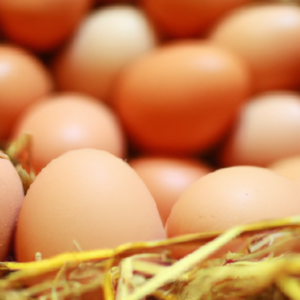
Imagine the delightful sight of geese and chickens frolicking together in your backyard, creating a harmonious blend of honks and clucks that adds a touch of charm to your daily routine. But, is it possible to keep these feathered friends together in the same area? This article aims to explore the compatibility of geese and chickens, shedding light on the potential challenges and benefits of cohabitation. Whether you’re a curious backyard enthusiast or considering expanding your flock, read on to discover the fascinating dynamics of keeping geese and chickens side by side.
Introduction
If you’re considering keeping geese and chickens together in the same area, you may be wondering about their compatibility and the potential benefits and challenges of doing so. While both geese and chickens are common domesticated birds, they have distinct behaviors and requirements that need to be considered before cohabitating. In this article, we will explore the compatibility, benefits, and potential challenges of keeping geese and chickens together, along with recommended setups and care tips to ensure the well-being of both species.
Compatibility of Geese and Chickens
Behavior
Geese and chickens have different social structures and behaviors. Chickens are highly social animals that live in flocks with a clear pecking order, while geese exhibit stronger pair bonding and mate for life. However, with proper introductions and careful monitoring, these two species can coexist harmoniously. It is important to ensure that the social dynamics of both species are not disrupted during their interactions.
Feeding Habits
Chickens are omnivorous and primarily feed on grains, seeds, insects, and vegetation. On the other hand, geese are primarily grazers and consume grasses, weeds, and grains. While chickens and geese can share some food sources, it is crucial to provide separate feeding areas to prevent competition and ensure that each species gets their required nutrients.
Water Requirements
Both geese and chickens require access to sufficient water for drinking and bathing. Geese enjoy swimming and benefit from having a larger body of water, such as a pond or a shallow pool. Chickens, on the other hand, prefer shallower water for bathing. It is important to provide separate water sources for each species to fulfill their specific water requirements.
Housing Needs
When keeping geese and chickens together, it is essential to provide appropriate housing that meets the needs of both species. Geese are larger birds that require more space and can be housed in a simple shelter or a small shed with access to a fenced area for grazing. Chickens, on the other hand, need a secure coop with nesting boxes and perches for roosting. Ensuring that each species has their designated housing area helps prevent territorial disputes and promotes harmonious cohabitation.
Health Considerations
Before introducing geese and chickens to the same area, it is crucial to consider the potential health risks. Geese and chickens can carry different diseases, and some infections can be transmitted between the two species. To minimize the risk of disease transmission, it is recommended to keep geese and chickens from different sources to prevent the introduction of pathogens. Additionally, regular health checks and vaccinations are essential to maintain the well-being of both geese and chickens.
Factors to Consider Before Keeping Geese and Chickens Together
Space Requirements
One of the primary factors to consider is the available space for cohabitation. Geese and chickens require adequate space to move around, graze, and exercise. The minimum recommended space for geese is two square yards per bird, while chickens need at least four square feet per bird. Providing ample space ensures that both species can thrive and minimize territorial conflicts.
Handling and Management
Both geese and chickens have distinct handling requirements. Geese are larger and can be more challenging to handle compared to chickens. It is important to learn proper handling techniques for geese to prevent any stress or harm to the birds. Additionally, managing their feeding and daily care routines separately helps prevent competition and ensures that each species receives proper care.
Predator Protection
When keeping geese and chickens together, ensuring their safety from predators is crucial. Geese can be excellent guardians, as they are highly alert and protective. Their honking can alert the flock, including the chickens, of potential danger. However, it is important to provide a secure and predator-proof enclosure for nighttime safety. Installing fences and other deterrents can help minimize the risk of predation and keep both geese and chickens safe.
Benefits of Keeping Geese and Chickens Together
Egg Production
One of the significant benefits of keeping geese and chickens together is increased egg production. Chickens are known for their frequent egg-laying, while geese produce eggs seasonally. By having both species in the same area, you can enjoy a steady supply of chicken eggs throughout the year, while the geese contribute their eggs during their breeding season. This allows for a diverse and plentiful supply of fresh eggs.
Weed and Pest Control
Geese are excellent grazers and can contribute to weed and pest control in the area. They can help keep the grass and vegetation in check, reducing the need for manual maintenance. Additionally, geese are known to deter some pests with their presence, such as snakes and small rodents. The combination of geese’s grazing habits and chickens’ natural foraging instinct can create a well-balanced ecosystem within the area.
Companionship
Keeping geese and chickens together can provide companionship for both species. Chickens are social animals and enjoy the presence of other birds, including geese. The geese, in turn, can form strong bonds with their chicken counterparts. This companionship can enhance the overall well-being and happiness of both geese and chickens, creating a harmonious and enjoyable environment.
Potential Challenges with Keeping Geese and Chickens Together
Territoriality and Aggression
Geese, particularly during their breeding season, can exhibit territorial behavior and aggression. They may defend their nesting areas and can be protective towards their chicken companions. It is important to monitor any signs of aggression and provide separate nesting spaces for geese and chickens to minimize potential conflicts.
Disease Transmission
As mentioned earlier, geese and chickens can carry different diseases, some of which can be transmitted between the two species. Disease transmission can easily occur if the birds come from different sources without proper quarantine and health checks. Regular veterinary care, vaccinations, and maintaining strict biosecurity measures are essential to prevent disease outbreaks.
Messiness
Geese are known for their large size and messy eating habits. They can create a considerable mess when grazing and feeding, which may affect the cleanliness of the area. Additionally, geese droppings are larger than chicken droppings and can be challenging to manage. Regular cleanup and proper waste management strategies are necessary to maintain a clean and hygienic living environment.
Recommended Setups and Care Tips
Separate Living Spaces
To ensure harmonious cohabitation, it is recommended to provide separate living spaces for geese and chickens. This includes separate shelters, nesting areas, and feeding stations. By having designated spaces for each species, you can minimize territorial conflicts and provide them with the specific environments they need to thrive.
Feeding Arrangements
As mentioned earlier, geese and chickens have different feeding habits. Providing separate feeding areas and ensuring each species has access to their required diet is crucial. This prevents competition for food and ensures that both geese and chickens receive the necessary nutrition. Adequate feeding stations can also help reduce messiness and ensure hygienic feeding practices.
Monitoring and Observing
Regular monitoring and observation of the behavior and health of both geese and chickens are essential. This helps identify any signs of aggression, illness, or stress early on, allowing for prompt intervention. By closely observing their interactions and well-being, you can ensure a positive and safe environment for both species.
Providing Shelter
Geese and chickens require shelters that are suitable for their specific needs. Geese may require a simple shed with access to a fenced grazing area, while chickens need a secure coop with nesting boxes and perches. Providing appropriate shelter helps protect them from the elements and potential predators, ensuring their overall well-being.
Conclusion
While keeping geese and chickens together in the same area requires careful considerations and management, it can be a rewarding experience. Understanding the behaviors, feeding requirements, and space needs of both geese and chickens is crucial for maintaining their compatibility. By providing appropriate housing, separate living spaces, and observing their health and behavior, you can create a harmonious environment where both species can thrive. The potential benefits, such as increased egg production, weed and pest control, and companionship, make it worthwhile to explore the possibilities of keeping geese and chickens together.







